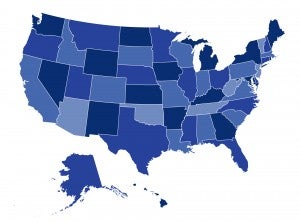What’s Going on in Tennessee? One Possible Reason for Its Affordable Care Act Challenges

Recently the Governor of Tennessee observed that his state was “ground zero” for insurers pulling out of the ACA marketplaces. In the wake of Humana’s decision to withdraw from the marketplaces for 2018, the residents of 16 counties in that state face the prospect of no insurance company at all from which to buy a subsidized health plan. Tennessee is not alone in having a fragile ACA marketplace, but its situation is particularly acute, especially if no other insurer can be persuaded to operate in those counties. Why is Tennessee’s market struggling, when other states with similar demographics, such as Arkansas, have more competition and market stability?



